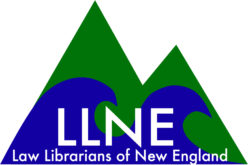Providing reference assistance on legal topics is tricky. While more courts are providing more information on the web and in pamphlets at court clerks’ offices to help people navigate the system, lots of gray areas remain. Errors can have significant consequences. Although public librarians are not likely to be confused with a practicing attorney, it’s important to not go too far helping your patron on legal research questions. State statutes prohibit the unauthorized practice of law (UPL) by non-attorneys. While you want to do everything you can to get the right information to your patron, it is important not to do anything which can get you entangled in the patron’s legal problem.
Here are some guidelines to consider as you work with your patrons:
- Generally, focus on steering patrons to quality legal information. Advise them that you cannot interpret the law for them.
- Don’t help patrons fill out forms or draft legal documents. A patron might ask you a very simple question about filling out a form – as simple as what to write in a box labeled “last name”, which, if done incorrectly, can cause a case to be delayed or thrown out. Say, for example, you’re asked this very question and tell them to write their last name in that box. It could be that they were actually supposed to write in the last name of their named opponent in the case! It’s always best to direct the patron to resources that explain how to fill out the form (which may be available on the court’s website) rather than attempting to assist them with this yourself. The same goes for drafting legal documents (wills, leases, contracts, court pleadings…). Refer them to resources; don’t help them draft the form.
- Don’t define terms or explain what legal written materials mean. Help the patron find a dictionary or other source to help them understand the unclear term or phrase.
- Don’t read legal documents out loud to patrons (e.g. over the telephone). The patron might misunderstand or misinterpret a word or phrase, changing the meaning of the passage read.
- Steer clear of telling patrons what search terms to use. Help them brainstorm possible search terms and demonstrate how to execute a search using their terms.
- Stick to advice on the mechanics of doing the research, and steer away from engaging in analysis of the problem or the search hits. The decisions of whether a specific case, regulation, or statute is relevant to the question is definitely something to leave to the patron.
- This sounds brutal – and is easier said than done, but don’t allow a patron to fully explain her legal problem to you. This advice is contrary to our natural librarian instincts. But by avoiding the story, you reduce the appearance of serving in an advisory role. Help them find information. Even direct them to attorney referral services. But don’t offer legal advice.
